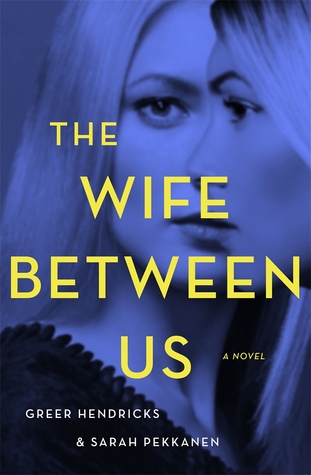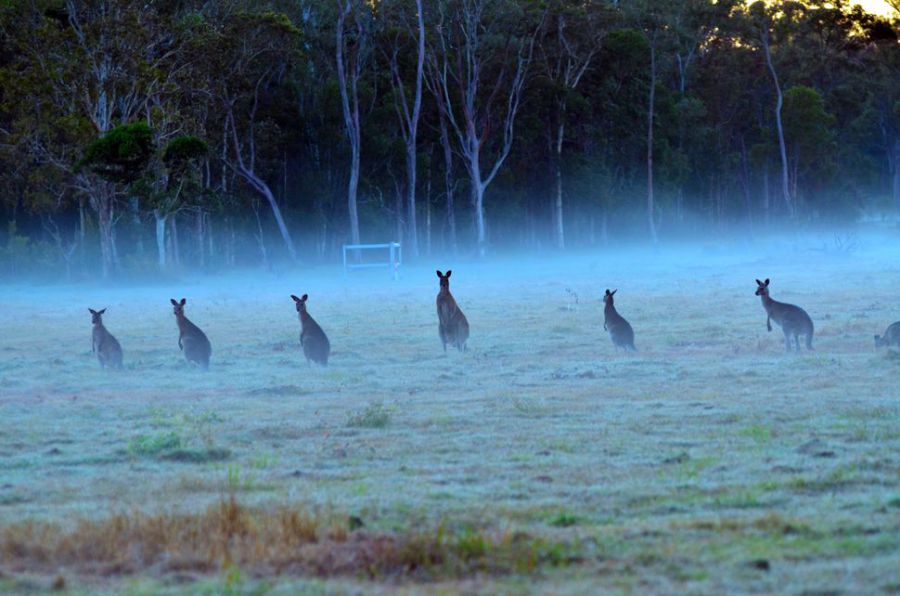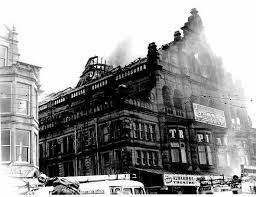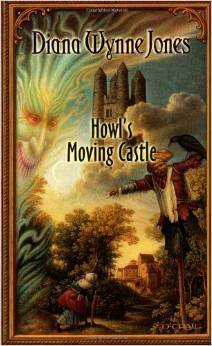
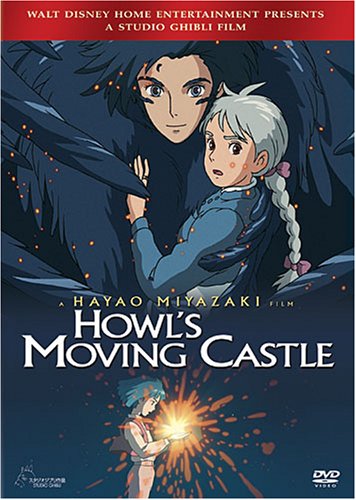
I have always believed words and intent to be magical. Words can build things up or tear them down. The things you say can affect the people around you; similarly the things you tell yourself affect how you perceive the world. So it’s not a huge stretch to say that Sophie Hatter is one of the characters I relate most to. What really ignited my imagination though, was definitely the wit and intelligence that went into both the novel and the movie.
Here is where I have to admit that I had never heard of this novel until Hayao Miyazaki’s adaptation made its way to the states. I’ve always loved Studio Ghibli films, so when I saw the advertisements for it I just had to see it. Miyazaki didn’t disappoint. Everything about this movie- the animation, the story, the music, even the voices- had me hooked. I must have watched it at least three times the weekend we rented it. When I found out it was based on a novel, I was hyper-focused on finding and reading it for myself.
Once I started reading the novel, I couldn’t stop. It held me spellbound with great characters, amazing imagery, and really great and funny dialogue. Of course, it’s world’s different from the movie- and this isn’t an exaggeration- but in such a way that it charms you from the start. All of the characters have great motivations and are relatable. The plot is brilliant. It’s so much fun to read that I definitely recommend it to anyone looking for a good fantasy. So what are these big differences? Everything from character appearance, missing characters, and huge plot points. Does it take away from the movie? Not in my opinion. To me, the movie is more like a love letter to Diana Wynne Jones’ work.
“If I give Howl his heart back, what will happen to you?” “I’ll be okay if it’s you, I think.”
One of the most prominent plot points missing from Miyazaki’s adaptation is the fact that Sophie has magical abilities. In the novel Sophie talks to the hats she makes and whatever she tells them they are, they become. In the movie they only vaguely hint to this in order to keep the focus on Sophie’s curse. And for anyone who has watched the movie: have you ever noticed how sometimes Sophie becomes herself only for her curse to come back? Usually it’s when she talks down about herself, or when she states that she’s only an old woman. This is because in the novel, Sophie is cursed at first. But when she discovers she can appreciate being old because she’s free to do as she wishes, it becomes less of a curse and more of a disguise. In other words, she only keeps the curse with her own power. Howl tells her in the novel: “But do you honestly think I don’t know my own business well enough not to spot a strong spell like that when I see it? I had several goes at taking it off you when you weren’t looking. But nothing seems to work. I took you to Mrs. Pentstemmon, hoping she could do something, but she evidently couldn’t. I came to the conclusion that you liked being in disguise.” A moment later he elaborates to a furious Sophie, “It must be, since you’re doing it yourself.”
To me this is interesting because Sophie’s “curse” reminds me a lot of my anxiety. So much so that I’m almost convinced this was meant to represent anxiety. In the beginning of the book Sophie even seems to have a panic attack upon meeting Howl. (And no, in the novel he doesn’t save her, nor drags her into trouble. He merely flirts with her.) What makes me think this is how she talks down to herself. From the very start of the novel she has convinced herself that as the eldest child she won’t amount to anything and that it’s her job to make sure that her siblings do. Not her father’s, nor her stepmother’s but her responsibility. Now to understand how this can be related to anxiety, you have to understand the different causes. Sometimes it’s caused by medical conditions ranging from heart disease to tumors, chronic illness, etc. Other times it’s a side effect of medication. In most cases I’ve seen or heard about, it can be caused by traumatic events, stress build-up, and even personality. In my case it’s worsened or even stems from a very low self-esteem. I feel like this is the case with Sophie since her family life is never portrayed as particularly bad. Though, it also could have something to do with her mother’s death.
In any case, Sophie shows a particularly low self-esteem, always believing that she’s not good enough to do certain things. It’s why I believe her powers hold on to the curse. You tell yourself something enough- especially if you can give life to words- you start to believe it and cause those words to become truth. And what’s more terrifying than having to face that anything you know about yourself is wrong? That you feel a duty to your family but want and need something different? This is the case with Sophie as it’s made clear from the start that she doesn’t want to be tied to the hat shop; instead she wants adventure and excitement. In the end she gets just that.
Now some of the other differences lie in Howl’s character. In the novel he’s much more flawed and cowardly. There’s never a moment where he stops and says, “I’m doing this because I’ve found something to protect.” He is kind-hearted for sure; he refuses to charge his everyday clients full price for things, he takes Michael (or Markl as he’s referred to in the movie) under his wing, and does his best to help remove Sophie’s spell without her knowledge. He doesn’t want credit for any of the good he’s done so he continually gives himself a bad name. He never actually states his feelings outright, merely fails to answer questions and changes the subject. Sophie calls him a “slitherer-outer.”
Another difference is the black knob on the castle door. It never leads to some war or anything- it leads to Wales. Modern time Wales to be specific. In fact, Howl originally is a normal human in Wales before he found Ingary- “where such things as seven- league boots and cloaks of invisibility really exist.” He seems to be an outcast from his own family there, as well. When he comes to Ingary he finds Mrs. Pentstemmon who teaches him magic. In the movie Mrs. Pentstemmon is combined with another character Wizard Suliman. In the novel they’re both different characters with no desire to take anyone’s powers or help the king in some backwards war. In fact, war is only mentioned as a slim future possibility.
In fact, the true antagonist in this novel is the Witch of the Waste. She made a deal similar to Howl’s and as such, can no longer tell good from evil. In fact, her motivation is only to make the perfect man. Honestly there are so many more changes that I feel as if I can only scratch the surface without giving away the rest of the plot.
So if you’re looking for a nice fantasy or have seen the movie and you’re just curious as to what inspired it, I strongly suggest this fun, magical, and quite often humorous read.
Share this:


